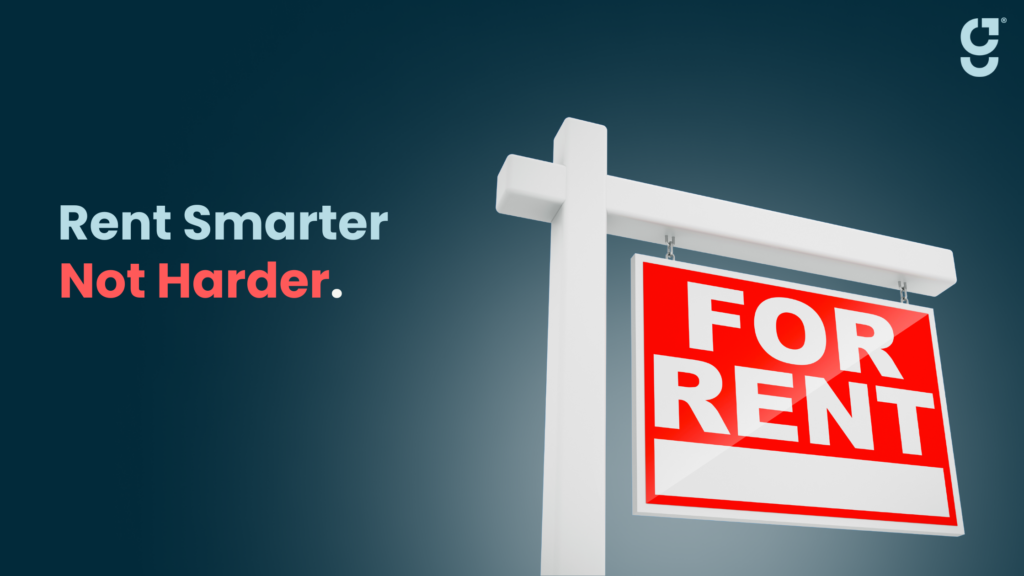Over the last decade, the cost of rent has exploded while wages remained stagnant. This is especially true in larger cities, but remains relevant Canada-wide as reported by CBC. Indeed, rent is one of the most expensive items on a budget, so we’ve put together some tips to save on rent.
1. Get a roommate
This one is pretty obvious, and it will save by far the most money. The average cost of a one-bedroom apartment in Toronto is $2,350, while the average cost of a two-bedroom apartment is $3,000. Divide that second number by two and it’s $850 cheaper per month and over $10,000 in savings per year! And that doesn’t include shared expenses like electricity, internet, and kitchen supplies.
2. Search during the winter months

Landlords have a tougher time finding tenants in winter. It’s cold outside and people aren’t willing to leave their cozy homes. Vacancies can go on for months, and with each month landlords are losing money and getting more desperate.
Prices get expensive in the summer months. There is a lot of demand during the summer since college graduates flood the market and families with children wait until the school year is over to make a move. All that makes for an increase in demand which equals higher prices in the summer. Look for apartments in the winter, and offer to sign an extended lease that ends in the summer. That ensures the apartment hits the market at a good time for the landlord when you move out, and the landlord gets some stability in the meantime. They’ll be willing to work with you for those trade-offs.
3. Negotiate when you renew a lease
Landlords want to keep good tenants. It costs them money to move you out and bring someone else in. They will also loose income when the apartment is not rented out, in between tenants. That means you have a little bit of leverage. Research similar apartments in your area and come in with a number in mind. If the landlord won’t budge, tell them you’re going to look elsewhere. If you’ve been a good tenant, they’ll want to keep you. Word of caution: Know who you are dealing with. Independent landlords have a lot more wiggle room than property management companies. Maybe they have multiple renters in the complex and aren’t willing to make concessions, so try to sweeten the deal by offering something in return.
4. Pay up front

If you can afford it, offer to pay the entire lease or at least a few months up front for a discount. The landlord will cut a deal to have cash in hand, but it’s only an option if you have enough savings to cover and then some. You don’t want to rack up credit card debt because you emptied your bank account to save a few hundred dollars on rent. The savings would be lost to credit card interest. And if you do pay up front, make sure you pay the money back into your savings each month.
5. Sign an extended lease
Like most investors, landlords want stability. You can give it to them by signing for an 18-month or 24-month instead of a regular 12-month lease. The longer the lease, the lower the landlord should be willing to go.
6. Give up or monetize your parking space
If you don’t have a car, you won’t need a parking space. Offer to give it up in exchange for discounted rent. The landlord would be able to sell the space to another tenant, who might need extra parking. If the landlord doesn’t want to rent the parking space separately, you may be able to rent it out yourself for a decent monthly income stream.
7. Leasehold improvements

If you love working with your hands, offer the landlord to make leaseholds improvements in exchange for a discounted rent. This can include a thorough clean up prior to moving in, painting the walls, fixing holes and general improvements to the unit. In addition to saving on the monthly rent, you’ll find yourself to live in a freshly renovated apartment!
8. Watch out: Paying rent with a credit card is double-edged
You may want to cash in on rewards and cash back programs from your credit card, but make sure there is no service charge or fees associated with credit card payments. Such fees will likely exceed any benefit you get from your credit card. In addition, you run the risk of overloading your credit card, which can hurt your credit score and incur additional fees. Always pay it back in full at the end of the month. Carrying a balance on your credit card will hurt your credit score, and the last thing you want to do, while trying to save money, is to add credit card debt.



